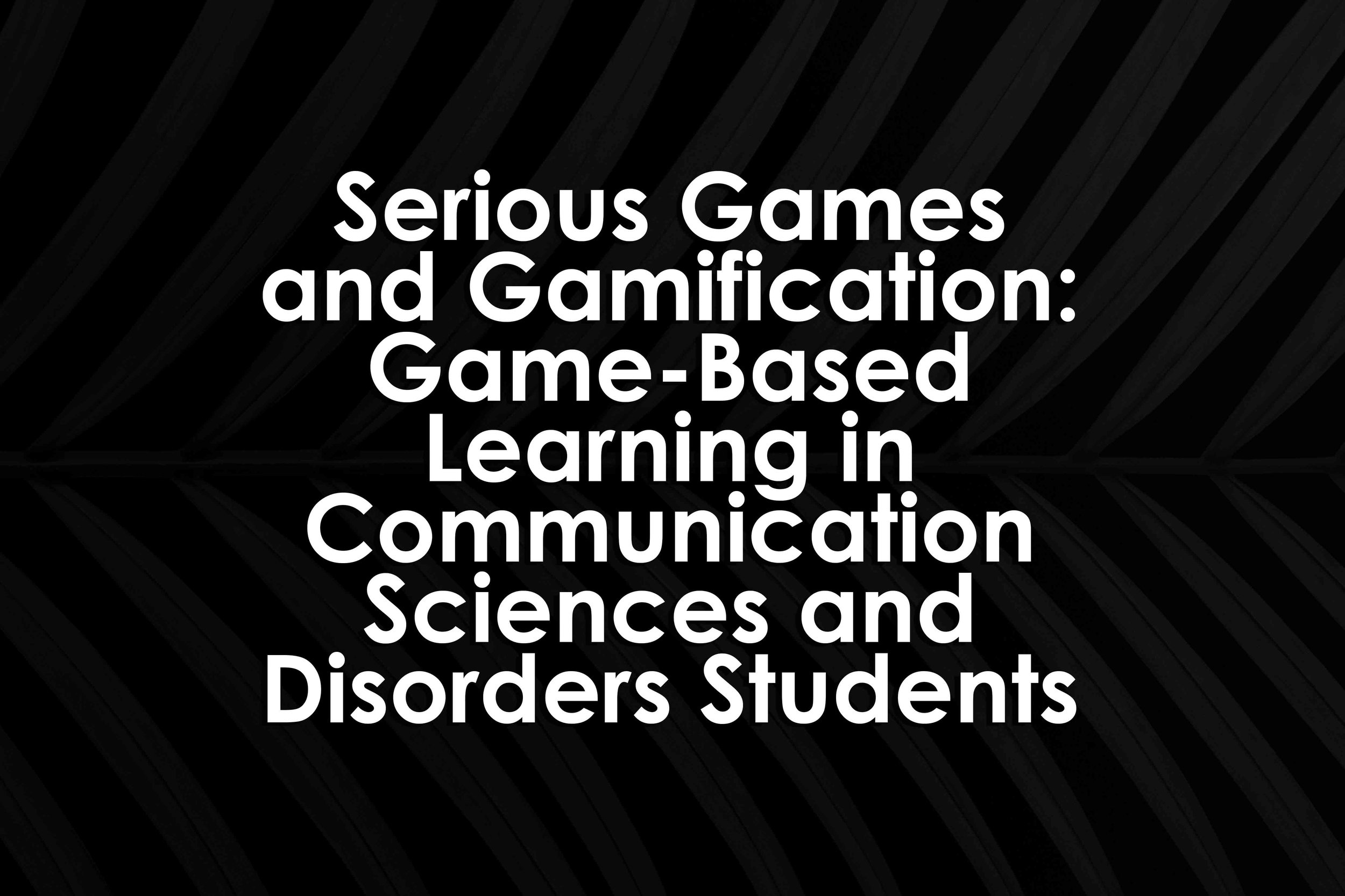Serious Games and Gamification: Game-Based Learning in Communication Sciences and Disorders
Serious Games and Gamification: Game-Based Learning in Communication Sciences and Disorders
Serious Games and Gamification: Game-Based Learning in Communication Sciences and Disorders
By Tim Brackenbury and Lisa Kopf
Abstract
“Purpose: Serious games and gamification are evidence-based forms of game-based learning that facilitate student/client instruction. Serious games are activities that directly incorporate educational content into games; gamification integrates characteristics of games into nongame activities. They both promote learning by increasing students' motivation and engagement. The purpose of this tutorial is to facilitate readers' understanding and use of serious games and gamification in communication sciences and disorders (CSD) education, in both classroom and clinical settings. It includes models of motivation and engagement, research on serious games and gamification, in-depth examples from two CSD courses, and suggestions for implementation.
Conclusions: Multiple studies, including meta-analyses, have demonstrated significant positive effects of both serious games and gamification on student motivation, engagement, and learning. Self-determination theory is a useful model for developing serious games and gamified learning because it provides a complex understanding of learners' needs and multiple levels of intrinsic and extrinsic motivation. Suggestions for incorporating serious games and gamified learning in CSD contexts include designing activities that address and balance motivation and learning, targeting specific forms of motivation in meaningful ways, and reconsidering intrinsic motivation as the ultimate goal of learning.”
Reference
Brackenbury, T., & Kopf, L. (2022, April 14). Serious games and gamification: Game-Based Learning in Communication Sciences and disorders. Retrieved April 20, 2022, from https://pubs.asha.org/doi/full/10.1044/2021_PERSP-21-00284
Keywords
Gamification, serious games, learning, increased engagement, education, motivation, research

